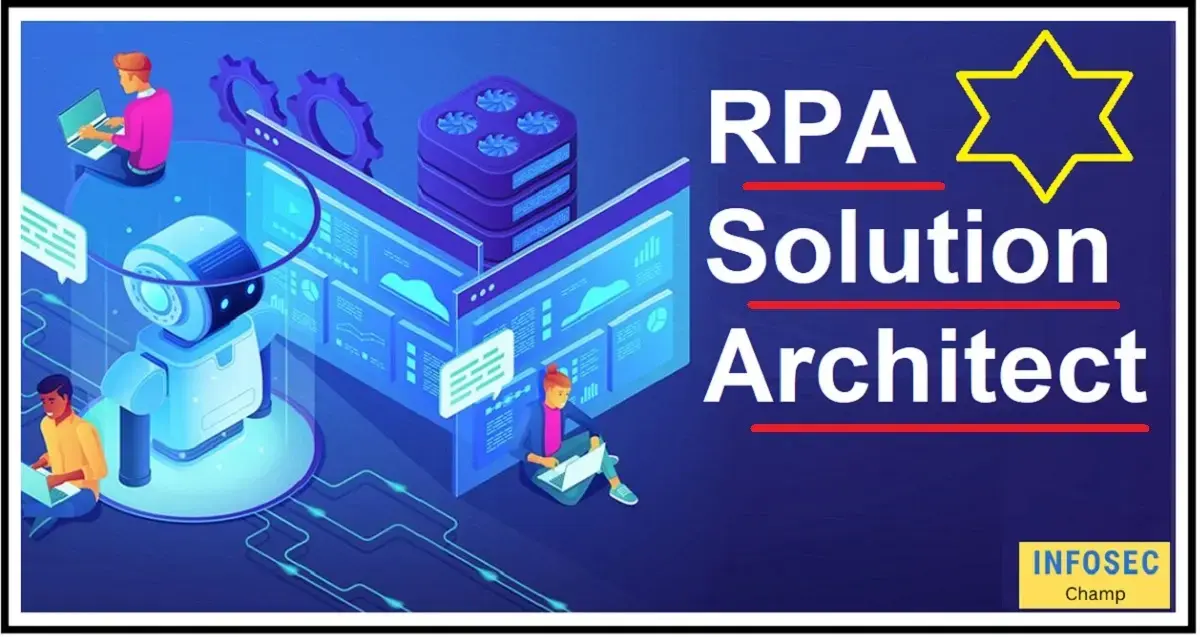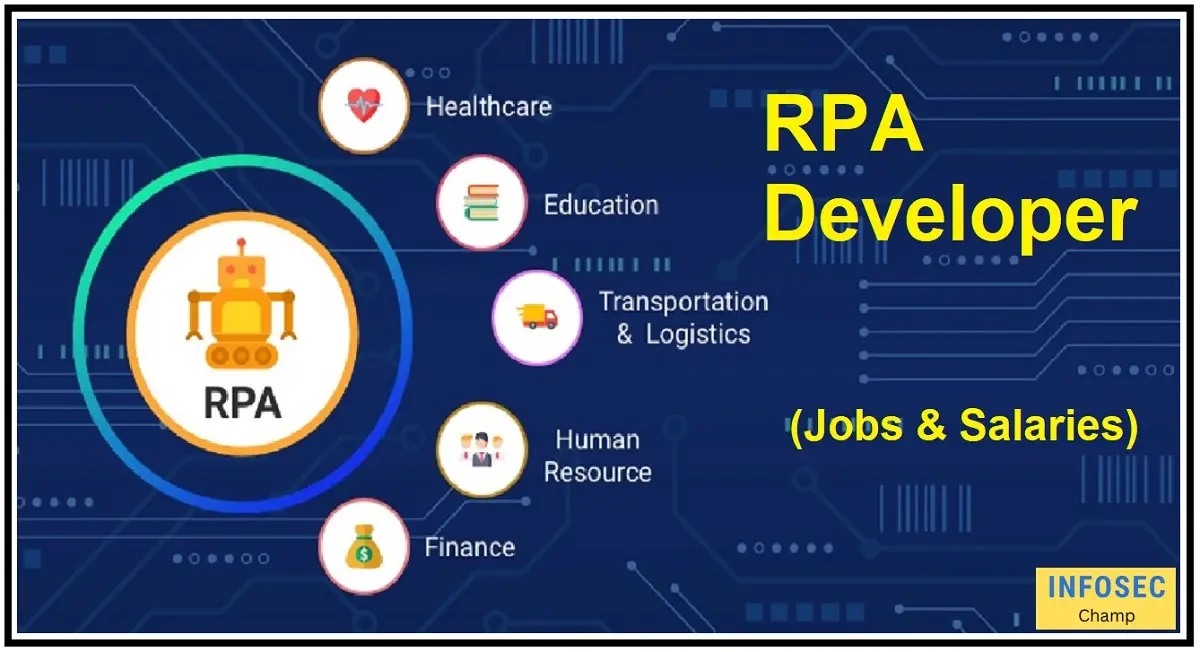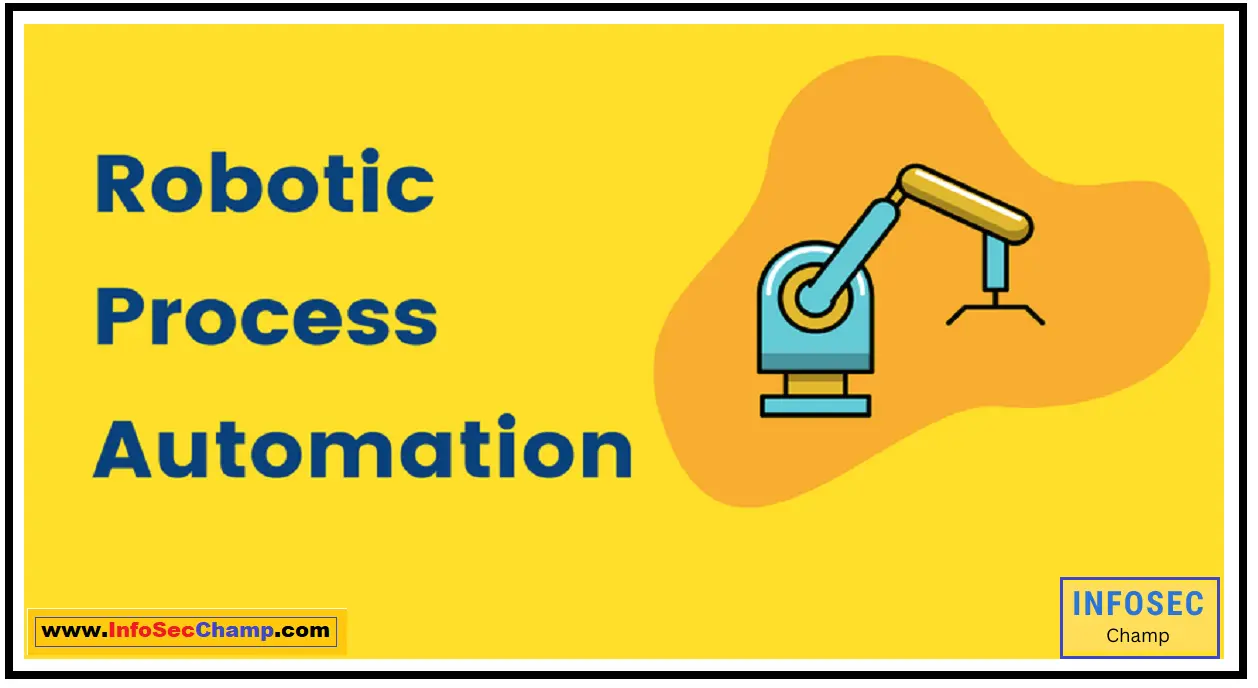What is RPA, demand for RPA developer jobs in the field of robotic automation process?
The demand for RPA developer jobs in the business has increased as a result of the growing popularity of robotic process automation (RPA). The demand for qualified individuals to design, develop, and execute RPA systems has increased significantly as firms attempt to automate manual and repetitive tasks. The need for RPA developer jobs has thus increased significantly in recent years.
There is a great demand for RPA developer jobs positions for the following reasons:
- Increased Adoption of RPA: RPA is being adopted more widely as businesses engage in the technology to automate their manual and repetitive operations as they become aware of the advantages of RPA. The need for RPA developers has significantly increased as a result of this.
- Time and Cost Savings: By automating manual and repetitive operations, RPA helps businesses save time and money. RPA developers that can design, develop, and execute RPA solutions that can assist organizations in achieving their objectives are in greater demand as a result.
- Ease of Use: RPA solutions are simple to use and can be quickly implemented. RPA developers that can design and create RPA solutions that can be integrated into a business’s existing systems and processes are in greater demand as a result.
- High ROI: RPA provides a high return on investment (ROI) since it helps firms cut expenses and time while boosting productivity. Due to this, there is a greater need for RPA developers that can design and create RPA systems that have a high return on investment.
- Growing Industry: The demand for RPA developer positions is anticipated to rise in the years to come as the RPA industry expands quickly.
As more and more companies attempt to automate their manual and repetitive processes, the need for RPA developer roles in the robotic automation process is anticipated to increase. RPA developers with the necessary knowledge and experience are in high demand and can look forward to a promising future in this industry.
| Advantages of RPA | Demand for RPA Developers |
| Increased Adoption of RPA | High |
| Time and Cost Savings | High |
| Ease of Use | High |
| High ROI | High |
| Growing Industry | High |
What is RPA, Robotic Automation Process?
The software technology known as robotic process automation (RPA) makes it possible to automate manual, repetitive, and time-consuming operations. By automating tasks that were previously carried out by humans, RPA aims to improve efficiency, cut costs, and streamline corporate processes.
Robotic process automation, or RPA, automates manual, repetitive, and time-consuming operations using software robots. These jobs could be anything from processing invoices and entering data to providing support and customer care. The software robots are made to imitate human actions including opening a program, copying and pasting data, and clicking buttons.
Some of the main advantages of RPA in the realm of the robotic automation process are listed below:
- Increased efficiency: RPA may automate manual and repetitive operations, giving staff more time to concentrate on projects with greater added value.
- Improved accuracy: Accuracy is raised since the chance of human error is decreased by automating manual operations.
- Increased productivity: By automating manual operations, cutting processing times, and allowing staff to concentrate on more crucial duties, RPA can considerably boost productivity.
- Cost savings: Businesses can minimize labor costs, as well as the cost of mistakes and rework, by automating manual operations.
- Scalability: RPA offers flexibility to adjust to market changes by being easily scaled to suit the changing needs of the business.
- Improved customer experience: RPA can be used to automate tasks that interact with customers, enhancing the customer experience and resulting in a more effective and streamlined procedure.
By automating tedious and repetitive processes, robotic process automation (RPA), a formidable technology, has the potential to alter enterprises. Companies can use RPA to boost productivity, boost accuracy, cut expenses, and free up staff to concentrate on other crucial duties.

How does an RPA developer contribute to the success of a robotic automation process project?
The success of a robotic automation process project is greatly influenced by an RPA developer. The developer is in charge of creating and executing automated procedures, which aid businesses in increasing productivity and minimizing human labor. An RPA developer helps a robotic automation process project succeed in the following ways:
- Designing Automated Processes: The RPA developer is in charge of creating automated processes in accordance with the objectives and specifications of the organization. They examine corporate procedures, pinpoint areas that could be improved, and draught a plan for the automation project.
- Building Automated Workflows: Following the completion of the design phase, the RPA developer constructs the automated workflows that will carry out the process. They program the robots using RPA solutions like Automation Anywhere, Blue Prism, and UiPath to make sure they function properly and precisely.
- Testing and Debugging: The automated workflows must be tested, and any faults or flaws must be fixed, by the RPA developer. They make sure the robots are operating at their peak efficiency and delivering the intended results.
- Implementation: The RPA developer implements the automated processes in the production environment when the development and testing phases are finished. They are in charge of making sure the robots are integrated with the organization’s other systems and procedures.
- Maintenance and Upgrades: The RPA developer is in charge of maintaining the automated procedures. They keep an eye on the robots’ efficiency and accuracy and deal with any problems that crop up.
- Collaboration with Stakeholders: The RPA developer works closely with many organizational stakeholders, such as IT, business teams, and project managers. Together, they make sure that the automated processes satisfy business requirements and are in line with the objectives of the company.
The success of a robotic automation process project depends heavily on an RPA developer. They are in charge of creating and implementing automated processes that boost productivity and generate profit. Organizations should give hiring and training RPA developers top priority since they are essential to the success of robotic automation process projects.
| Responsibilities | Contributions to Success |
| Designing Automated Processes | Aligning the automated process with organizational goals and requirements |
| Building Automated Workflows | Ensuring the robots perform optimally and produce desired outcomes |
| Testing and Debugging | Fixing bugs and errors to ensure accuracy and performance |
| Implementation | Integrating the robots with other systems and processes within the organization |
| Maintenance and Upgrades | Monitoring and addressing performance and accuracy issues |
| Collaboration with Stakeholders | Aligning the automated process with the needs of the business and organizational goals |
What are the most sought-after skills for an RPA developer in the field of the robotic automation process?
A prominent actor in the field of the robotic automation process is an RPA (Robotic Process Automation) developer. There is a growing need for qualified RPA developers as businesses in all industries use RPA technology. An RPA developer must have both technical and non-technical skills in order to succeed in this position. The following are some of the most in-demand abilities for RPA developers:
Technical Skills:
- Knowledge of RPA tools such as Automation Anywhere, UiPath, Blue Prism, and WorkFusion
- Proficiency in programming languages such as Java, Python, and C#
- Experience with database programming and SQL
- Knowledge of API integration and REST services
- Understanding of Agile and Scrum methodologies
Non-Technical Skills:
- Analytical thinking and problem-solving skills
- Good communication and collaboration skills
- Ability to work well in a team
- Adaptability to new technologies
- Attention to detail and ability to identify process improvement opportunities
- Strong project management and time management skills
The following table summarizes the most sought-after skills for an RPA developer:
| Technical Skills | Non-Technical Skills |
| Knowledge of RPA tools | Analytical thinking and problem-solving skills |
| Proficiency in programming languages | Good communication and collaboration skills |
| Experience with database programming and SQL | Ability to work well in a team |
| Knowledge of API integration and REST services | Adaptability to new technologies |
| Understanding of Agile and Scrum methodologies | Attention to detail and ability to identify process improvement opportunities |
| – | Strong project management and time management skills |
The field of the robotic automation process is in great demand for RPA developers that have a mix of technical and non-technical skills. RPA developer must constantly upgrade their knowledge and abilities to stay relevant in this quickly expanding sector as RPA technology continues to advance.

What is the role of an RPA solution architect in robotic automation process projects?
To ensure the effective implementation and execution of RPA initiatives, an RPA Solution Architect’s role in robotic automation process projects is essential. The Solution Architect is in charge of planning and directing the technical components of the RPA solution, making sure they adhere to the business requirements and the broader enterprise architecture.
An RPA Solution Architect is primarily responsible for:
- Understanding Business Requirements: To fully grasp the precise needs and goals of the RPA project, the Solution Architect consults with business stakeholders frequently. They examine the procedures that require automation and look for areas that might be enhanced.
- Designing RPA Solution Architecture: The Solution Architect designs the overall architecture for the RPA solution based on the business needs. They devise the technical framework, pick the proper RPA technology, and choose the most effective method for integrating it into the current IT environment.
- Overseeing Technical Implementation: The RPA solution’s technical implementation is the responsibility of the solution architect. They make that the RPA solution is successfully implemented, delivers on performance goals, and complies with security and compliance regulations.
- Defining RPA Standards and Guidelines: The Solution Architect collaborates with the RPA team to establish the standards and guidelines for the creation, implementation, and upkeep of RPA. These standards and directives aid in ensuring the reliability and excellence of the RPA solution.
- Collaborating with IT Teams: The Solution Architect works together with IT teams to make sure the RPA solution fits seamlessly with the current IT environment and systems. When implementing the RPA system, they collaborate closely with the IT teams to address any potential technical problems.
- Managing RPA Projects: The Solution Architect is also in charge of overseeing RPA projects and making sure they are finished on time and within the allocated budget. They supervise the RPA development team and make sure that the project deliverables are performed in accordance with the specified project plan.
In summary, an RPA Solution Architect’s role is crucial to the effective execution of RPA initiatives. In addition to managing RPA projects, they are in charge of creating the architecture of the overall RPA solution, supervising the technical execution, establishing RPA standards and norms, and working with IT teams.
How does Robotic Process Automation Accenture approach the implementation of RPA in a business setting?
In recent years, robotic process automation (RPA) has revolutionized commercial processes. As one of the top technology consulting companies, Accenture has been at the forefront of RPA adoption. Accenture uses a thorough and collaborative process to introduce RPA in a business environment, which includes the following steps:
- Assessment: Accenture evaluates the present condition of the business processes and determines the RPA-automatable areas. This involves examining the current process environment, locating process bottlenecks, and assessing the possible advantages of implementing RPA.
- Strategy and Roadmap: Accenture collaborates with the business to build a strategy and implementation plan for RPA. This includes defining the project’s scope, deciding the business goals, and selecting the ideal RPA solution for the organization.
- Design and Build: The RPA professionals at Accenture create and construct the RPA solution that best satisfies the needs of the organization. As part of this, the automation rules must be established, robots must be constructed, and the solution must be integrated with the current systems.
- Deploy and Monitor: Accenture delivers the RPA solution and keeps an eye on it to make sure everything is going according to plan. Accenture also aids in the transition to the new automated procedures by training end users.
- Optimize and Enhance: Accenture continuously improves and optimizes the RPA solution to guarantee that it offers the business the greatest possible value. This entails adjusting performance, keeping an eye on the robots, and making adjustments as necessary.
The RPA implementation strategy used by Accenture is intended to optimize the advantages of RPA for the company. The business and Accenture’s team of professionals collaborate closely to understand the company’s needs and build a solution that meets those goals. Accenture’s method for implementing RPA enables companies to automate their processes quickly and efficiently, lowering costs, enhancing accuracy, and freeing up resources to concentrate on more important objectives.
The adoption of RPA in a business environment is approached comprehensively, collaboratively, and with a focus on results by Accenture. The business’s requirements are thoroughly understood by Accenture professionals, who then collaborate with the company to create a solution that offers the most benefit possible. Businesses that work with Accenture can modernize their operations, increase operational effectiveness, and beat the competition.
What is the difference between an RPA developer and a traditional software developer in the context of the Robotic Automation Process?
While there are many similarities between typical software engineers and those who specialize in robotic process automation (RPA), there are also numerous contrasts between the two professions, especially when it comes to robotic automation processes. While a standard software developer concentrates on the construction of software applications, an RPA developer specializes in the design and implementation of software robots that automate repetitive, routine, and time-consuming processes. The two roles are contrasted as follows:
Responsibilities:
- RPA Developer: Create, create, test, and maintain software robots that can automate monotonous jobs in a range of business processes.
- Traditional software developer: Design, create, test, and maintain software applications as a traditional software developer would.
Skills:
- RPA Developer: Experience in UI design and data analysis, as well as knowledge of RPA tools and programming languages like Python, VBScript, and .NET.
- Traditional software developer: Strong programming abilities, familiarity with the software development life cycle, and database administration expertise are required of a traditional software developer.
Focus:
- RPA Developer: Concentrates on streamlining and automating particular business procedures while lowering manual labor demands.
- Traditional software developer: Concentrates on creating software programs from the ground up to satisfy certain business needs.
Workflow:
- RPA Developer: Uses pre-built components where available to automate particular operations and processes using RPA tools and technology.
- Traditional software developer: Creates custom software programs by writing code from scratch.
The Industry:
- RPA Developer: Typically works in fields like banking, finance, insurance, and healthcare that demand a high degree of automation.
- Traditional Software Developer: Can work in a variety of fields, such as technology, healthcare, finance, and retail.
The roles, competencies, and areas of interest of RPA developers and traditional software developers are different, despite certain similarities. While traditional software developers are in charge of building software systems from the ground up, RPA developers are experts in automating certain business processes. Both positions are essential to the effective integration of technology into the contemporary business environment, and which one is best will depend on the particular demands and specifications of a given project.

How do RPA developer salaries compare with other tech roles in the field of the robotic automation process?
Since businesses across a wide range of industries want to increase productivity and streamline operations, RPA developers are in high demand in the robotic automation process. RPA developers make competitive wages when compared to other IT roles as a result. The income of an RPA developer, however, might vary depending on a number of criteria, including the developer’s location, expertise, and employer size.
The salaries of RPA developers are compared to those of other technical positions in the robotic automation process in the table below:
| Role | Average Salary (USA) |
| RPA Developer | $85,000 – $115,000 |
| Software Developer | $75,000 – $100,000 |
| Data Analyst | $65,000 – $85,000 |
| Business Analyst | $65,000 – $85,000 |
| Project Manager | $85,000 – $115,000 |
The aforementioned numbers should be understood as general approximations, and actual pay can change depending on a variety of variables. A software developer with the same degree of expertise, for instance, could be able to fetch a lower compensation than an RPA developer with a good portfolio of completed projects. Similar to how the cost of living differs by geography, tech hotspots like San Francisco and New York City often provide higher incomes than smaller places.
The size of the organization can also affect an RPA developer’s remuneration. For instance, compared to smaller businesses, large corporations with a global presence may be able to pay larger salaries.
Overall, compared to other tech positions in the field of the robotic automation process, the pay of RPA developers are competitive. However, it’s critical to remember that pay might vary depending on a number of variables, including experience, location, and size of the company.
How can an RPA developer showcase their skills and experience in their resume for job opportunities in the robotic automation process? | robotic automation process jobs
The demand for Robotic Process Automation (RPA) and the rivalry for RPA developer positions are both increasing. An RPA developer needs to successfully present their talents and experience in their resume in order to stand out in a crowded job market. Here are some pointers to assist you in successfully marketing your RPA knowledge and improving your chances of getting hired for your next position in the robotic automation process industry.
- Tailor your resume to the job: Do some research on the firm and the position you are applying for before you start creating your resume. As a result, you’ll have a better idea of the knowledge and expertise the company values, and you’ll be able to adjust your resume accordingly.
- Highlight your technical skills: Your abilities as an RPA developer are built on your technical expertise. Don’t forget to emphasize your expertise with RPA development technologies like Automation Anywhere, UiPath, Blue Prism, etc.
- Emphasize your experience: Highlight the RPA projects you have worked on and the precise duties you were in charge of in the job experience section of your resume. Make sure to put a number on your accomplishments, such as “Developed and implemented 5 RPA solutions, which led to a 20% increase in efficiency.”
- List relevant certifications: Having the appropriate certifications can show your knowledge and dedication to your RPA development profession. If you have any certificates, such as an RPA certification from Automation Anywhere, UiPath, etc., be sure to add them.
- Include additional skills: Along with your technical abilities, be sure to draw attention to any additional skills that might be pertinent to the position, such as prior experience using databases or with programming languages like Python or Java.
- Use keywords: Be sure to add pertinent keywords related to RPA and the particular position you are seeking to make sure recruiters and employers can quickly find your resume.
| Key skills and experience | Description |
| Technical skills | Proficiency in RPA development tools such as Automation Anywhere, UiPath, Blue Prism, etc. |
| Experience | Highlight the RPA projects you have worked on and the specific tasks you were responsible for. Quantify your achievements. |
| Certifications | List any certifications you have obtained, such as RPA certification from Automation Anywhere, UiPath, etc. |
| Additional Skills | Highlight any additional skills that may be relevant to the job, such as experience in programming languages such as Python or Java, or experience with databases. |
| Keywords | Include relevant keywords related to RPA and the specific job you are applying for. |
The CV of an RPA developer is an essential tool for securing their future position in the robotic automation process industry. RPA developers can improve their chances of distinguishing out and obtaining their chosen employment by emphasizing their technical expertise, experience, qualifications, and other talents.
What are the challenges faced by RPA developers in implementing robotic automation processes in different industries?
The manner in that firms automates their processes has been completely transformed by robotic process automation (RPA). RPA deployment, however, has its own set of difficulties, particularly for RPA developers. The main difficulties encountered by RPA developers when adopting RPA in various businesses will be covered in this article.
- Integration with Legacy Systems: Integrating RPA with legacy systems is one of the biggest issues facing RPA developers. The necessary APIs to interface with RPA software is not present in legacy systems, which are frequently out-of-date. Because of this, it is challenging for RPA developers to automate operations that rely heavily on these platforms.
- Lack of Standardization: The absence of standards in the RPA software market presents another difficulty for RPA developers. RPA developers struggle to find the best tool for their unique needs because different RPA suppliers offer different RPA software with varied capabilities.
- Data Privacy and Security: Data privacy and security present additional difficulties for RPA developers. Large amounts of sensitive data are gathered, stored, and processed by RPA solutions; if managed improperly, this data might be a security concern. Data acquired and processed by RPA must be secure and shielded from unauthorized access, according to RPA developers.
- Scalability: Only a small number of processes can be automated at once with RPA systems. RPA developers may thus encounter scaling difficulties when attempting to use RPA in sectors with a large number of processes.
- Change Management: The introduction of RPA frequently necessitates modifications to the current workflows, procedures, and IT systems. Employee resistance may result from this, making them wary of implementing new procedures and technologies. RPA programmers must overcome these obstacles by utilizing efficient change management techniques.
- Lack of Skilled RPA Developers: The RPA market is still in its early phases, and there is a shortage of skilled RPA developers. Finding the right RPA developers with the necessary training and expertise to successfully implement RPA becomes difficult for businesses as a result.
There are difficulties in using RPA in various businesses. RPA developers may, however, overcome these difficulties and assist firms in effectively and efficiently automating their processes by using the appropriate tactics and technologies.
| Challenges | Solutions |
| Integration with Legacy Systems | Integration of RPA with legacy systems can be done through the use of APIs or middleware solutions |
| Lack of Standardization | RPA developers must thoroughly research and compare different RPA software before choosing the right tool for their specific needs |
| Data Privacy and Security | RPA developers must implement data privacy and security measures to protect sensitive data collected and processed by RPA |
| Scalability | RPA developers can overcome scalability challenges by choosing RPA software that is scalable and can automate a large number of processes |
| Change Management | RPA developers can address change management challenges by implementing effective change management strategies and training employees on new technologies and processes |
| Lack of Skilled RPA Developers | Organizations can overcome the challenge of finding skilled RPA developers by offering training and development programs for employees and partnering with RPA service providers |
How has Robotic Process Automation changed the way businesses approach their automation processes?
Businesses wishing to automate their processes should consider robotic process automation (RPA). RPA has become a potent tool for businesses in recent years to streamline processes, boost productivity, and improve efficiency. The technology enables repetitive, laborious, and time-consuming processes to be automated, freeing up personnel to concentrate on higher-value duties. We’ll look at how RPA has altered how firms approach their automation operations in this post.
- Increased Efficiency: One of the biggest improvements brought about by RPA is efficiency gains. RPA eliminates human error, shortens processing times, and increases data accuracy by automating repetitive and manual processes. Businesses are able to perform activities more quickly and with fewer mistakes thanks to the faster, more streamlined workflow that results from this increased efficiency.
- Improved Accuracy: Increasing accuracy is another advantage of RPA. With RPA, jobs are carried out by software robots that always adhere to the same procedures and rules. As a result of this methodological consistency, there are fewer human errors and the processed data is more accurate.
- Increased Productivity: Employers can use RPA to relieve staff members of routine duties so they can concentrate on higher-value jobs. Businesses can lessen employee workloads by automating processes, giving them more time and energy to work on other crucial projects. A more productive workplace is the result of this rise in productivity.
- Lower Costs: RPA can also assist companies in cutting costs. Businesses can save labor expenses by eliminating the need for human labor by automating operations. RPA can also help firms cut down on the errors that happen during manual processing, which lowers the price of fixing these problems.
- Scalability: As businesses’ needs for automation increase, they can rapidly and simply add more robots thanks to RPA’s scalability. RPA is adaptable for businesses of all sizes because of its scalability, enabling them to quickly adapt to changes in their operations and take advantage of new possibilities as they present themselves.
The way firms approach their automation processes has evolved as a result of robotic process automation. RPA has developed into a crucial tool for companies trying to optimize their operations and boost their bottom line by enhancing efficiency, improving accuracy, increasing productivity, cutting expenses, and enabling scalability.

